The Hidden Costs: Common Exclusions and Uncovered Items in Your BMW Warranty
Understanding the Basics: What Your BMW Warranty Typically Covers
Before we dive into what’s excluded, it’s helpful to quickly understand what your standard BMW factory warranty generally does cover. Most new BMWs come with a New Vehicle Limited Warranty, often referred to as a bumper-to-bumper warranty, for a period of 4 years or 50,000 miles, whichever comes first. This typically covers defects in materials or workmanship for most components of the vehicle. This includes major systems like the engine, transmission, electrical systems, and drive axle, assuming the failure is due to a manufacturing defect and not external factors or normal wear.
This coverage is designed to give you confidence that if something goes wrong with the way your BMW was built or assembled, BMW will stand behind it. However, it’s not an all-encompassing shield against every potential cost. The distinction between a manufacturing defect and other types of issues is where things often get tricky, leading us directly into the hidden costs.
The Fine Print: Common Exclusions You Might Miss
This is where the rubber meets the road – or rather, where your wallet meets unexpected repair bills. Many owners are surprised to learn that certain components or situations are explicitly excluded from their BMW warranty coverage. These exclusions are standard across most automotive manufacturers, but it's important for BMW owners to be aware.
Wear and Tear Items
Perhaps the most common category of exclusions involves components that naturally degrade over time and use. Your BMW warranty is designed to cover defects, not the natural lifespan of consumables. This includes:
- Tires: While a defect in the tire itself might be covered by the tire manufacturer, normal wear, punctures, or damage from road hazards are not covered by BMW.
- Brake Pads and Rotors: These are designed to wear down as you drive. Replacement due to normal wear is a maintenance item, not a warranty claim.
- Wiper Blades: Exposure to the elements and frequent use means these need regular replacement.
- Clutch Components (for manual transmissions): The clutch disc, pressure plate, and release bearing are considered wear items. Excessive wear due to driving style is not covered.
- Filters (oil, air, cabin): These are replaced as part of routine maintenance.
- Spark Plugs: They have a finite lifespan and are replaced at specific service intervals.
These items are expected to be replaced periodically as part of your BMW's normal operation and are your responsibility as the owner.
Routine Maintenance
Your BMW warranty is not a prepaid service plan. All routine maintenance services, which are critical for the longevity and performance of your vehicle, are your financial responsibility. This includes:
- Oil changes and filter replacements
- Tire rotations and balancing
- Wheel alignments (unless due to a covered defect)
- Fluid flushes and top-offs (other than those related to a covered repair)
- Inspections and adjustments performed as part of scheduled maintenance
Adhering to your BMW's recommended service schedule is vital, not just for performance, but also because neglecting maintenance can, in some cases, void aspects of your warranty if a failure is directly linked to a lack of proper care.
Cosmetic Damage and Exterior Wear
Dings, dents, scratches, paint chips from road debris, and minor interior wear (like worn carpet or scuffed trim not due to a defect) are typically not covered. Your warranty focuses on the functional integrity of the vehicle, not its pristine appearance after daily use or minor incidents.
Aftermarket Modifications
While many BMW owners love to customize their vehicles, be cautious. Using non-BMW approved aftermarket parts or making modifications to your vehicle's engine, suspension, or electrical system can potentially void your warranty for any components affected by the modification. For example, if an engine tune leads to an engine failure, BMW might deny the warranty claim. Always consult with your dealer or a qualified BMW specialist before making significant modifications.
Neglect, Misuse, or Accidents
This category is fairly straightforward but incredibly important. Your warranty will not cover damage resulting from:
- Accidents or Collisions: This is what your car insurance is for.
- Misuse or Abuse: Such as racing, overloading the vehicle, or improper towing.
- Lack of Maintenance: As mentioned, failure to perform required services can lead to denied claims.
- Improper Fuel or Fluids: Using the wrong type of gasoline, oil, or coolant can severely damage components, and these repairs will not be covered.
- Vandalism or Theft: Again, insurance territory.
Environmental Damage
Acts of nature are generally not covered under a standard manufacturer's warranty. This includes damage from:
- Floods or water damage
- Hail storms
- Lightning strikes
- Fires (unless caused by a manufacturing defect)
- Tree sap, bird droppings, or other environmental fallout
Comprehensive auto insurance is your protection against these scenarios.
Consumable Fluids
While a leak from a covered component (e.g., a power steering pump failing and leaking fluid) would be covered, the cost of simply topping off fluids like windshield washer fluid, coolant, or brake fluid as part of routine service is not covered by your warranty.
The "Grey Areas": When Things Get Tricky
Sometimes, a problem isn't black and white. For example, if a suspension component fails, is it due to a manufacturing defect (covered) or excessive wear from aggressive driving (not covered)? These situations can lead to extensive diagnostic work to determine the root cause. This is where having a good relationship with your BMW service center and clearly understanding your driving habits becomes important. Documentation of all your maintenance records is also key in resolving such ambiguities.
Your Best Defense: Pre-Purchase Inspection & Extended Warranties
Navigating the nuances of your BMW warranty can feel daunting, but you're not powerless. If you're buying a pre-owned BMW, a comprehensive pre-purchase inspection by a trusted, independent BMW specialist is invaluable. They can identify potential issues that might soon fall out of warranty or be excluded. For all BMW owners, carefully reviewing your warranty booklet is non-negotiable.
Furthermore, consider the benefits of an extended warranty or a BMW Certified Pre-Owned (CPO) program. While they come at an additional cost, these options can offer an extra layer of protection, often covering some items that fall outside the standard factory warranty period or provide coverage for a longer duration. Always compare the coverage details of extended warranties carefully, as they too have their own set of exclusions.
Conclusion
Your BMW is a masterpiece of engineering, designed to deliver an exceptional driving experience. Part of enjoying that experience without undue financial stress is truly understanding the boundaries of your warranty coverage. By being aware of common exclusions like wear and tear items, routine maintenance, and damage from misuse or accidents, you can better budget for your BMW's upkeep and avoid unexpected costs. Read your warranty document, ask questions, and embrace proactive maintenance. This approach ensures your BMW ownership remains a joy, not a source of hidden expenses.Where can I find my VIN?


